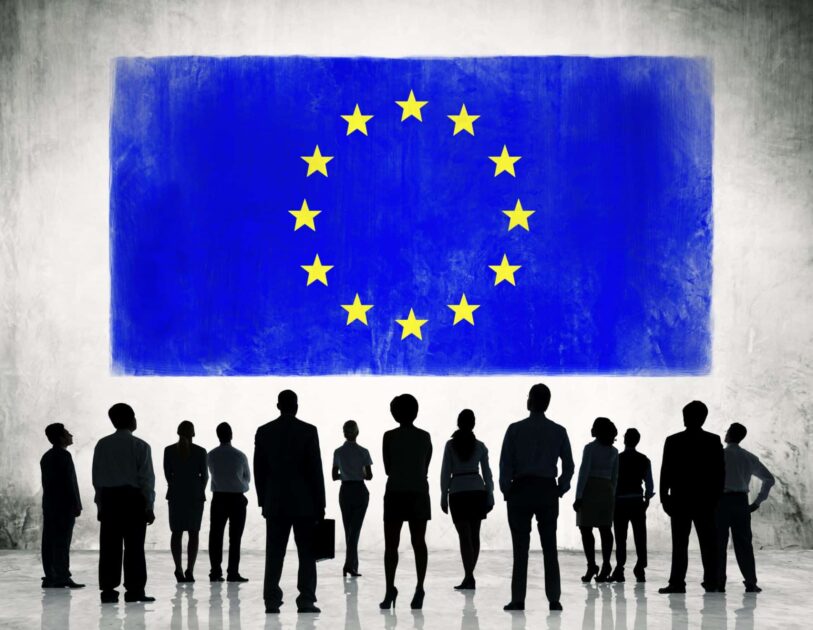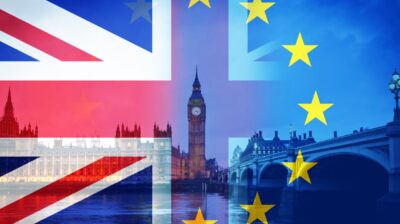How does a country join the EU?
Looking at the process of accession and the impact of enlargement in the European Union

What is ‘accession’?
Accession is the term used to describe the process of a country ‘acceding’ to or becoming a member of the European Union. Enlargement refers to the expansion of the EU when new countries become members of the Union. Ireland joined the then EC (European Communities) in 1973. There are currently five official candidate countries for EU accession; Albania, the former Yugoslav Republic of Macedonia, Montenegro, Serbia and Turkey.
What are the eligibility criteria for accession?
Firstly, an applicant country must be in the geographical European area and must also subscribe to the values of the European Union, as described by Article 2 of the Treaty of the European Union (TEU). These values are generally those of liberal democracy; respect for human dignity, freedom, democracy, equality and the rule of law, as well as respect for human rights. These include minority rights, the right to non-discrimination, tolerance, justice, solidarity and equality between men and women.
Secondly, an applicant country must fulfil the ‘Copenhagen criteria’, which are;
- Applicant countries must have stable institutions that guarantee democracy, the rule of law, human rights and respect for and protection of minorities
- Applicant countries must have a functioning market economy and the capacity to cope with competition and market forces in the EU
- Applicant countries must have the ability to adopt and implement the obligations of EU membership, including the aims of political, economic and monetary union.
Thirdly, an applicant country must also adopt and implement the acquis communautaire, i.e. the body of EU law, through appropriate administrative and judicial structures.
Fourthly, the integration of a new member state must be economically and politically viable from an EU perspective.
What is the accession process?
Becoming an EU applicant country
If a country fulfils the criteria contained in Article 2 of the Treaty on the European Union (regarding the broad values of the EU), it lodges a formal application with the Council of the EU (usually known as ‘the Council’, comprised of national ministers from EU member states).
The European Commission evaluates the applicant country and submits its opinion of the application to the Council. Bearing in mind the opinion submitted by the Commission, the Council then considers the application, potentially setting particular conditions that must be met by the applicant country before negotiations can begin. If such conditions are met by the country, accession negotiations begin with a ‘screening’ process, in which the Commission assesses the country’s compliance with existing EU law. The acquis consists of 35 chapters relating to different areas of EU law, ranging from policies on the Free Movement of Goods, to Agriculture, to Intellectual Property Law.
Candidate states benefit from the Instrument for Pre-accession Assistance (IPA), which is a fund directed to candidate countries to provide financial and technical assistance to achieve the necessary political and economic reforms to comply with the acquis of the EU. The current IPA budget for 2014-2020, aiding the five candidate states, amounts to 11.7 billion euro.
The Commission releases a report detailing the incompatibility of the current applicant’s practices, or highlights areas that require change or improvements before the country can be considered to be complying with the acquis. The aim of these reports is to provide applicants with a roadmap to comply with the terms of EU membership. Both the Commission and the applicant country draft and release annual reports to monitor and report upon the progress of the country. Each chapter must be ‘closed’ before an accession agreement is reached.
Becoming an accession candidate
The accession agreement reached during negotiations is then set out in an accession treaty. This treaty must receive the unanimous support of the Council and the consent of the European Parliament before it can proceed to accession stage. The treaty is passed to existing member states of the EU and to the applicant country for ratification, the process of which can vary from country to country depending on individual constitutional rules. In Ireland, accession treaties are voted upon in the Dáil and the Seanad, and granted presidential assent with the approval of both. The implication of individual member state ratification is that a member state has the power to block a country’s accession to the EU – for example, in 2012, Slovenia refused to ratify the Croatian accession treaty until a compromise deal was reached on how to handle the debt of the bankrupted Slovenian bank, Ljubljankska Banka, to its Croatian customers. Once a deal was reached between the Slovenian and Croatian governments on this matter, the Slovenian government agreed to ratify the treaty. Austria intends to hold a referendum on a Turkish accession treaty, if or when the time comes.
Becoming a member state
Once all member states have signed and ratified the accession treaty, the acceding country becomes a member state of the EU on the date specified in the treaty.
Enlargement from a member state prospective: for and against
Economically
Enlargement is supposed to be a mutually beneficial process for both the European Union and its new member states. When a new country accedes to the EU, current member states have free access to an expanded Single Market, providing new trade and investment opportunities. Acceding states can expect significant domestic economic growth, as was the case with the ten states that joined the EU in 2004, because of the prospect of new foreign direct investment, the decentralisation of economies (pertaining to the acquis), resulting in greater financial market and macroeconomic stability. New member states also become beneficiaries of the EU budget, allowing for structural and regional development, which further facilitates national economic growth.
The obvious fear of existing member states is that enlargement requires a dilution of the EU budget to support new members, resulting in a decrease of the aid available to poorer member states. The free movement of labour in the EU also raises fears of mass migration of workers from new member states to older Western member states, resulting in economic strains in existing member states. After the 2004 enlargement of the EU, Ireland, Sweden and the UK were the only countries to immediately open the labour market to migrant workers from newly acceded states, while other member states imposed 7-year immigration restrictions. The upside of an ‘enlarged’ free movement of labour is access to a more diverse European labour market, which in economic terms, can help to offset the impact of ageing populations and slow the growth of the population of working age.






